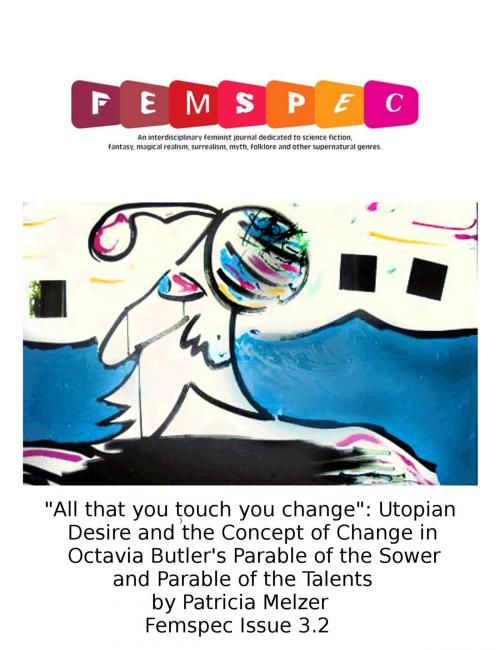"All That You Touch You Change": Utopian Desire and the Concept of Change in Octavia Butler's Parable of the Sower and Parable of the Talents by Patricia Melzer, Femspec Issue 3.2
Nonfiction, Social & Cultural Studies, Social Science, Gender Studies, Feminism & Feminist Theory| Author: | Patricia Melzer | ISBN: | 9781311833495 |
| Publisher: | Femspec Journal | Publication: | December 16, 2015 |
| Imprint: | Smashwords Edition | Language: | English |
| Author: | Patricia Melzer |
| ISBN: | 9781311833495 |
| Publisher: | Femspec Journal |
| Publication: | December 16, 2015 |
| Imprint: | Smashwords Edition |
| Language: | English |
This analysis examines two literary narratives by Octavia Butler, Parable of the Sower (1993) and Parable of the Talents (1998) that elucidate the intersection of three fields in Western thought: the notion of utopia, feminist politics and theory, and feminist science fiction. This intersection is crucial for feminists in that it provides tools for negotiating difference within feminist politics. I lay out the dynamics within Octavia Butler’s feminist utopian/dystopian writing that define her concept of “utopia” as both a utopian desire and a longing to transform. These allow her to theorize about future social relations and inform the strategies for feminist politics that she develops.
This analysis examines two literary narratives by Octavia Butler, Parable of the Sower (1993) and Parable of the Talents (1998) that elucidate the intersection of three fields in Western thought: the notion of utopia, feminist politics and theory, and feminist science fiction. This intersection is crucial for feminists in that it provides tools for negotiating difference within feminist politics. I lay out the dynamics within Octavia Butler’s feminist utopian/dystopian writing that define her concept of “utopia” as both a utopian desire and a longing to transform. These allow her to theorize about future social relations and inform the strategies for feminist politics that she develops.















